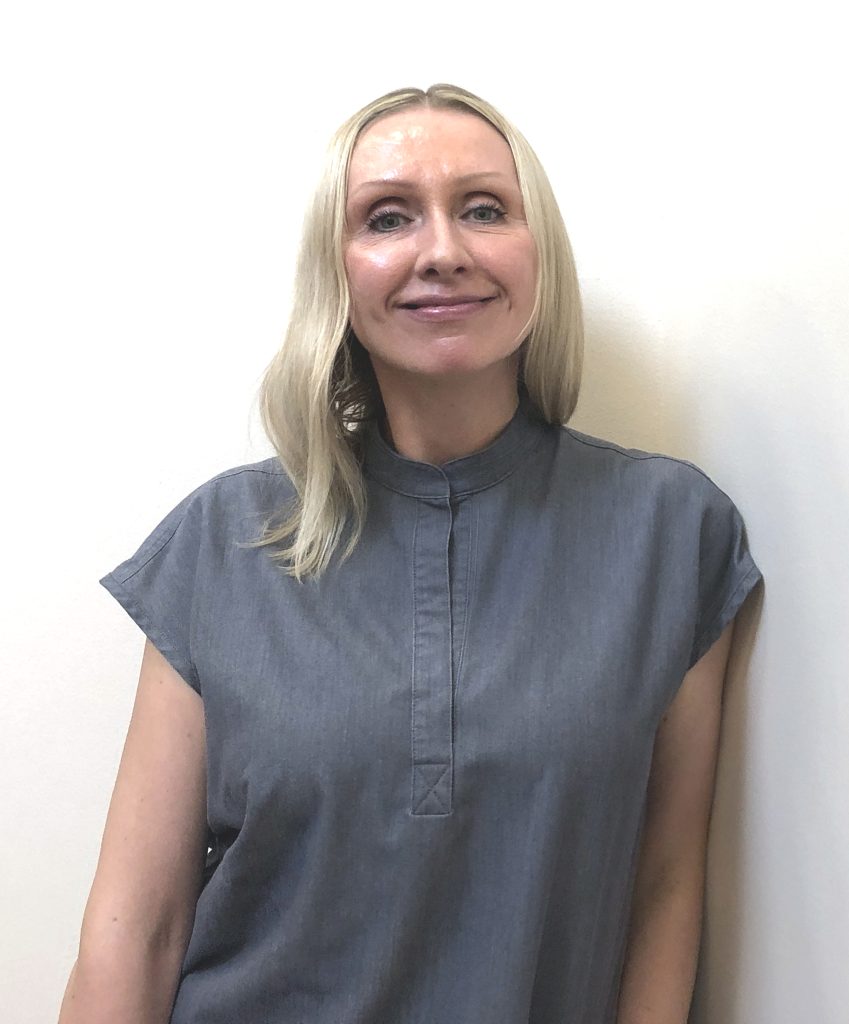Radiation Therapist Talks About Breast Cancer Treatment, Support

By Monica Calzolari
ONEONTA
If a friend was diagnosed with breast cancer, I would tell her not to panic. Breast cancer is very curable these days. The worst thing you can do is ignore the problem. Don’t put off treatment,” said Marzena Gabron, a local radiation therapist.
Gabron chose to become a radiation therapist after working as a social worker in the medical field.
Gabron said, “I worked in a skilled nursing facility and advised many patients with cancer. I wanted to help people with a more hands-on approach, going more deeply into medicine.”
Gabron arrived in the United States at age 25 after earning her bachelor’s and master’s degrees from Warsaw University in Poland. She is bilingual in Polish and English and also worked as an interpreter.
After working in Cooperstown for several years, she decided to attend the New York Methodist School of Radiation Therapy in Brooklyn. She graduated after two intense years of study, took the board exams and became certified in radiation therapy.
Gabron has been working as a radiation therapist for six and a half years. The treatment for breast cancer is complex and prolonged. It commonly includes various combinations of surgery, radiation therapy, chemotherapy and hormone therapy. Not all breast cancer patients require radiation.
“There are many different types of breast cancer,” said Gabron.
Treatment requires a multidisciplinary team with multiple doctors, including a medical oncologist, a radiation oncologist and a surgical oncologist.
The extended team can also include a physician’s assistant, nurses, radiation therapists, social workers, mental health professionals and even a psychiatrist.
Gabron said, “The technical aspect of my job is operating a very sophisticated and powerful machine called a linear accelerator. Then there is the human factor. We are called therapists because we see people in a holistic manner and try to put them at ease.”
A radiation therapist who is treating a breast cancer patient delivers focused radiation to the breast or chest wall, and sometimes to the lymph nodes. The radiation beam is a specialized X-ray and is painless.
Gabron explained, “By the time patients see a radiation therapist, they may have consulted a lot of people, done some research and had surgery. I tell my patients ‘take one day at a time and focus on your treatments.’”
“Radiation therapy after surgery can decrease the chance of cancer returning in the breast and improve survival…Radiation therapy kills cancer cells by destroying their ability to multiply,” according to the American Society for Radiation Oncology.
“We see patients over an extended period of time,” Gabron said, “so we get to know them as people.”
Radiation treatments are delivered every day, five days a week, Monday through Friday.
“The full course of treatment is usually delivered over three to seven weeks, depending on findings during surgery,” states the American Society for Radiation Oncology.
Gabron said, “On the first day of treatment, some patients show up nervous, scared and tense. Within a few days, most become comfortable. We try to educate and support patients in the beginning and throughout their treatment.”
Gabron continued, “Oneonta is a small community. I run into my patients at restaurants and the grocery store. I am lucky enough to be healthy myself. I am very grateful that I can support others who have cancer.”
“Being a radiation therapist is a very unique job. I move around quite a bit. I interact with patients. I deliver their radiation. I analyze the images and take notes. It is also mentally challenging. My schedule can be intense. When I was a social worker, I sat at my desk a lot more.”
“Cancer can be a terrible disease. Sometimes cancer wins,” Gabron admitted. “To recharge my battery, I try to go to the gym at lunchtime and to yoga classes twice a week. Having friends and loved ones that are supportive is also extremely helpful.”
Gabron said, “Mammograms are your best friend. Early detection is key.”
To those diagnosed with breast cancer, she advised, “Know the facts. Know your options.”
And, since early detection of cancer leads to the best outcomes, breast cancer awareness needs to reach men and women alike, Gabron explained.
“In my six and a half years working in this field, I have treated three or four men for breast cancer,” she added.
Support groups exist for breast cancer patients going through treatments and for breast cancer survivors. They can be helpful too.

